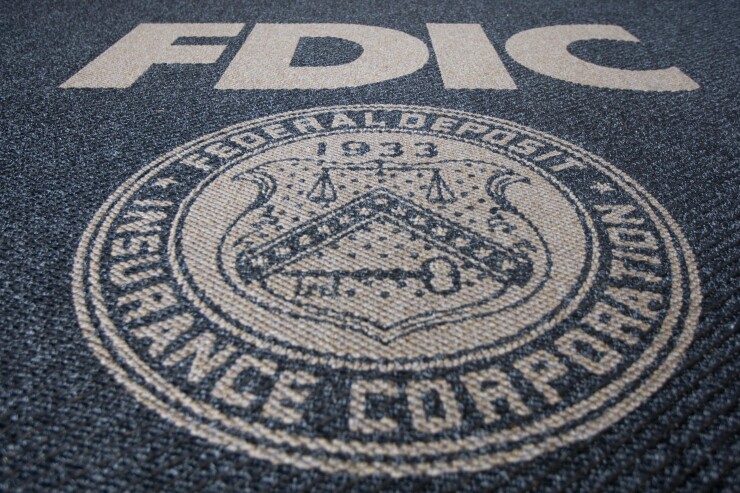WASHINGTON — The Federal Deposit Insurance Corp. announced proposed changes Thursday to its brokered deposit rules that would give banks more flexibility to raise funds.
The notice of proposed rulemaking comes a day after FDIC Chairman Jelena McWilliams
“The framework reflects the change in the banking industry and in how consumers interact with banks and banking services,” McWilliams said.
Under the current rules, a bank with a weakening capital position cannot accept brokered deposits. The intent of the law is to discourage struggling banks from using quick cash to fund risky asset growth, which was blamed in failures during the earlier thrift crisis and more recent mortgage debacle. The FDIC can also penalize banks relying on brokered funds in their deposit insurance assessments.

The FDIC’s proposal, which includes a 60-day comment period, clarifies that a deposit is not brokered when a customer has a direct relationship with the bank.
The proposal also updates the “primary purpose” exception, a legal definition referring to whether an entity’s main function is to place deposits in an insured institution. The rulemaking would provide that exception if less than 25% of the total assets that a person manages for customers are placed at depository institutions.
FDIC board member Martin Gruenberg was the lone dissenter. The four-member board approved the proposal 3-1.
“Despite the experience in two banking crises with the liquidity risks posed by brokered deposits, the proposed rule would significantly weaken this important credentialed rule by narrowing the types of deposit related activities covered by the prohibition,” Gruenberg said. “For this reason I will vote against this NPR."
Banks have long claimed that the current brokered deposit regulations stifle innovation and that the FDIC’s processes for determining brokered deposit standards are opaque.
McWilliams has also suggested Congress should act to update the underlying statute mandating the brokered deposit rules.
In a





